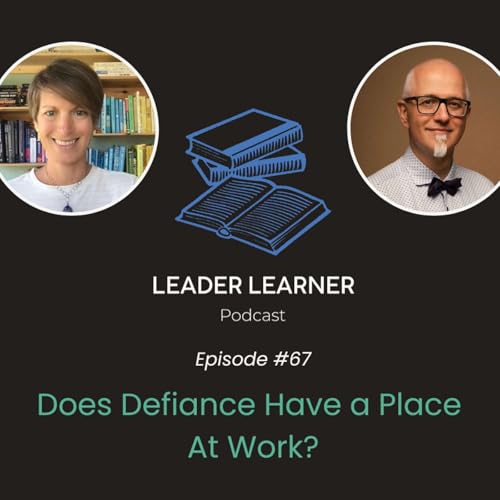Send us a text
💡 SPOTLIGHTED BOOK : First Things First by Stephen R. Covey 📚 GUEST READER : Maha Bali
💬 CONVERATION HIGHLIGHTS:
- it's a life management book and how to prioritize
- imagining the end of your life and what people will say about you
- Live, Love, Learn and Leave a Legacy
- visualization where you attend your own funeral
- when what is written on paper and what you do in real time does not match
- Do our personal goals interfere with our institution's goals?
- Switch careers in order to focus on learning and leaving a legacy
- You don't need to be balanced in all areas at all times - you might focus more on love in some phases of your life and then lean into learning and legacy in other phases
- when strong emotional labor in our work affects the rest of our life
- when we pursue a legacy that isn't ours
- education systems all have their issues
- when our pain points direct our passions and desire to "fix" things later in life
- restart works for more than computers and electronics
- leaning into what brings you joy
- opportunity gaps can cause us to choose a certain path, even if it doesn't fit for us
- when your value as a person is not remunerated financially within society
- reading books by only one demographic can be limiting
- reading things from different cultures takes additional reflection
- interacting with people from different cultures helps us understand other identities
- when you read a book by someone who lived it versus reading a book by someone who has observed the same experience
- when our looks and names get in the way of full assimilation in a country
- empathy to others oppression as an outside observer
- not forcing people into our language dynamics
- sharing learning with others and giving it freely
- share questions, not just the answers
- worry about giving the wrong knowledge
📚 OTHER BOOKS/RESOURCES MENTIONED:
- The 7 Habits of Highly Effective People by Stephen R. Covey
- Mindvalley - Speak and Inspire Course
- Lisa Nichols
- Belong - Radha Agrawal
- Emergent Strategy - adrienne marree brown
- Imagination : A Manifesto - Ruha Benjamin
- The Art of Gathering - Priya Parker
- The Message by Ta-Nehisi Coates
ℹ GUEST BIO AND LINKS:
Maha Bali is Professor of Practice at the Center for Learning and Teaching at the American University in Cairo. She has a PhD in Education from the University of Sheffield, UK. She is co-founder of virtuallyconnecting.org (a grassroots movement that challenges academic gatekeeping at conferences) and co-facilitator of Equity Unbound (an equity-focused, open, connected intercultural learning curriculum, which has also branched into academic community activities Continuity with Care,Socially Just Academia, a collaboration with OneHE: Community-building Resources and MYFest, an innovative 3-month professional learning journey. She writes and speaks frequently about social justice, critical pedagogy, and open and online education. She blogs regularly at https://blog.mahabali.me and tweets @bali_maha.
For Maha’s list of peer-reviewed publications, see here.
For Maha’s list of keynotes and invited talks,
More yummy content on leaderlearner.fm
 2025/12/0934 分
2025/12/0934 分 2025/11/1331 分
2025/11/1331 分 2025/10/3035 分
2025/10/3035 分 2025/10/1535 分
2025/10/1535 分 2025/02/1338 分
2025/02/1338 分 46 分
46 分 43 分
43 分 47 分
47 分
